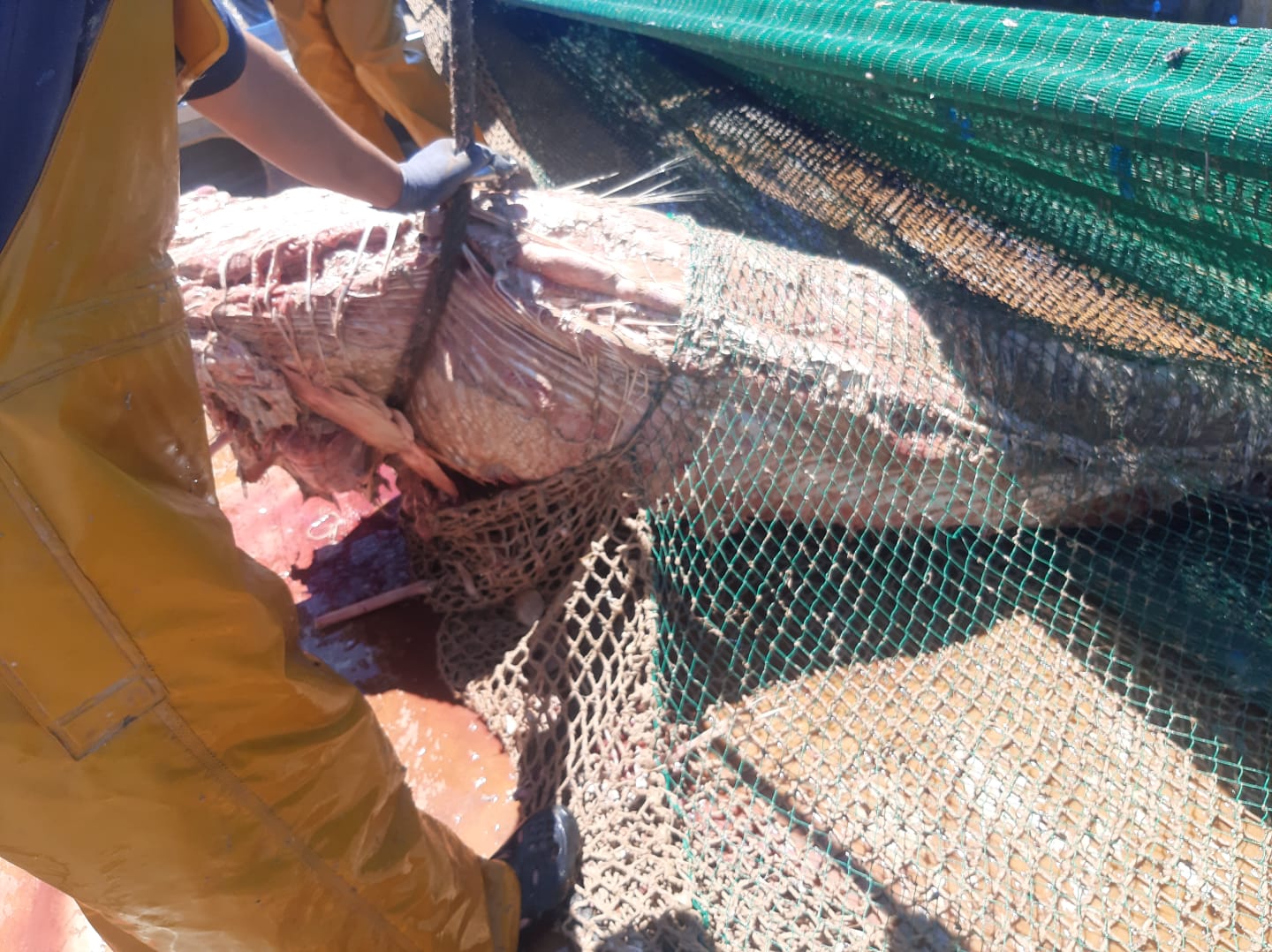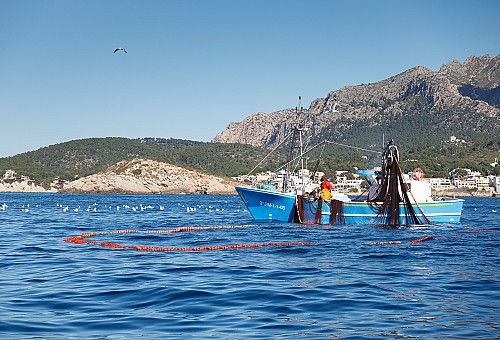The bad practices of tuna vessels fishing in the Balearic Sea have a great environmental, economic, and social impact.
Marilles denounces the dumping of dead tuna at sea and the impact it has on the Balearic fleet
The bad practices of tuna trawlers fishing in the Balearic Sea have a great environmental, economic and social impact
This Tuesday, 23rd July, a trawler from the Balearic fleet accidentally caught 13 dead and decomposing tuna. The specimens were found between the bay of Palma and Andratx.
This is a problem that we already denounced last month, when at the beginning of June this same boat accidentally caught 5 tuna weighing 200 kilos each, dead and in a state of decomposition. The fishermen of this boat denounce that they have changed their usual fishing area to avoid these findings, and yet they have once again caught dead tuna despite the change of location.
It is thought that tuna boats that fish in the Balearic Sea to supply the fattening farms in Murcia and Tarragona throw back tuna that die during the operation (fishing, transfer to cages, transport of cages) into the sea so that they are not counted against their quota.
These bad practices have been a constant in recent years with very negative consequences, both for the fishers and for the environmental health of our sea. That a fish of the highest commercial and ecological value, such as tuna, is wasted in this way is already a very serious issue, and even worse if it also destroys the catch of the Balearic fleet vessels.
We denounce these bad practices for the following reasons:
· They negatively affect the Balearic fishing fleet because fishing decomposing tuna results in a loss in wages and puts their fishing gears at risk.
· They represent a double waste in the dead tuna that is not used and the catch from the trawler, which is rendered useless and cannot be commercialised.
· They threaten the sustainability of the resource; tonnes of tuna are caught but not counted because they are thrown back into the sea, in addition to the wasted Balearic fishery resources.
These impacts are even more difficult to bear in view of the following:
· The Balearic fleet has less than 1% of the total tuna quota that the Ministry of Fisheries distributes among the Spanish fishing fleet. Specifically, 0.74% (50 tonnes out of the total 6783 tonnes for 2024).
· The Balearic Sea is a key area for the reproduction of different tuna species and where the highest density of bluefin tuna eggs and larvae in the world has been detected.
· Currently, recreational fishers do not have access to a single tonne of tuna, even though it is a species that is fished accidentally and poached.
· The presence of an ICCAT (International Commission for the Conservation of Atlantic Tunas) observer on all tuna purse seiners is mandatory for all transfers to cages.
Marilles calls for several actions:
· A thorough investigation to identify the vessels and companies responsible for this unacceptable activity and the extent of the problem. Right now, we do not know if the dead tuna thrown into the Balearic Sea number a few tens, a few hundred, or a few thousand.
· An immediate halt to tuna fishing in the waters of the Balearic Sea by vessels likely to have created this problem until measures are taken to ensure that such events do not happen again.
· Penalties for the companies guilty of this practice with a quota reduction AND a financial penalty.
· A redistribution of the tuna quota in favour of the Balearic fleet and consideration of opening it to the recreational fleet under the necessary conditions to minimise the risk of illegal practices.
"We have been suffering from this wasteful practice for too long. It is time to put an end to this impunity. Tuna is a species of great strategic value for the Balearic fleet and recreational fishing. The Balearics have a lot of tuna, but very little right to fish it. Other vessels come and waste this resource under our noses and do so causing problems for the Balearic fleet. This is an insult. Every tuna wasted would have been a tuna used by Balearic fishers. We call on the Ministry of Fisheries to take courageous and immediate action to stop this nonsense and redistribute tuna quotas in favour of Balearic vessels. We do not want a tuna cemetery in our waters. It is clear that there is something fishy in the tuna farming business."
Aniol Esteban, director of Marilles Foundation.
Hypothesis
There could be several reasons why tuna farmers let these catches go to waste. The main one is that these tuna have died in the process of capture, transfer to cages, or during transport to the fattening farms. As they cannot make an economic profit, they throw them back into the sea so that they do not count against the quota of the fleet. The fact that they have not been actively prosecuted or fined suggests there might be a loophole that allows purse-seiners to dump dead tuna at sea and not count them against their quota, as long as they have not been brought onboard.





